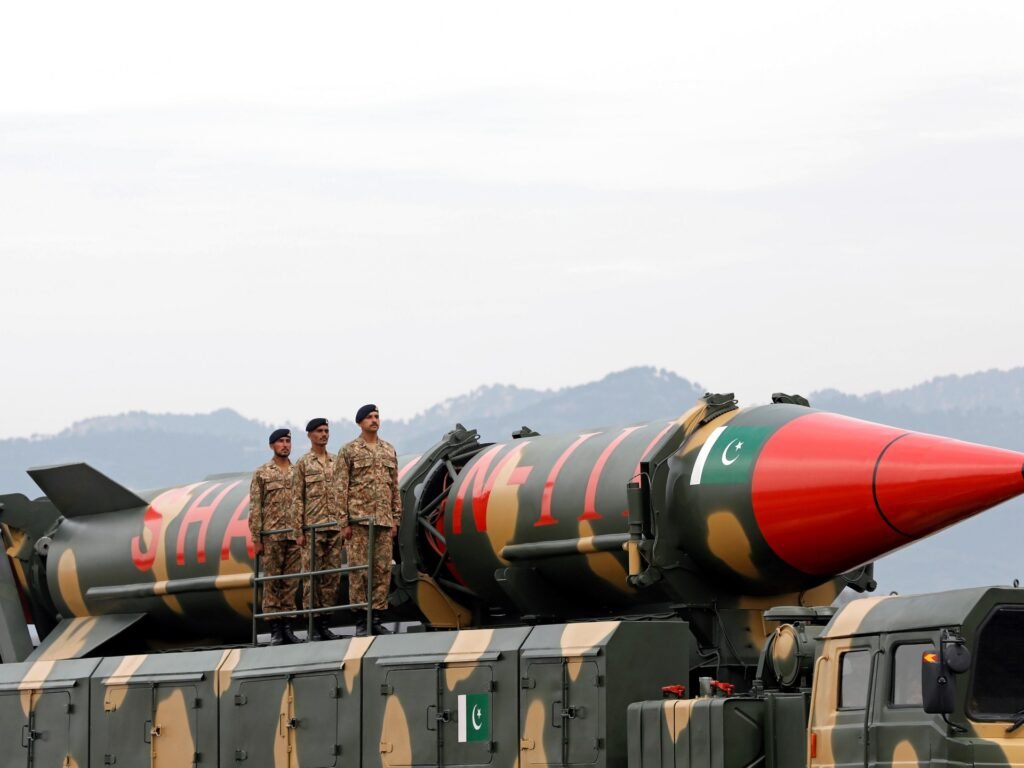Pakistan’s Foreign Ministry warns that sanctions have “dangerous implications” for the “strategic stability of the region.”
Pakistan has denounced new US sanctions against the country The country’s ballistic missile program as “discriminatory” and said they endanger regional peace and security.
Pakistan’s foreign ministry warned in a statement on Thursday that the sanctions “have dangerous implications for the strategic stability of our region and beyond.”
It also questioned U.S. claims that targeted companies were involved in arms proliferation, saying previous sanctions were “based on mere doubts and suspicions without any evidence.”
She also accused the US of “double standards” as it imposes licensing requirements on other countries for advanced military technology. The sanctions freeze all US property of the affected companies and prohibit Americans from doing business with them.
The US State Department said one of those sanctioned entities, the Islamabad-based National Development Complex, had been working to acquire items for the development of Pakistan’s long-range ballistic missile program, which includes the SHAHEEN series of ballistic missiles.
The other companies sanctioned are Akhtar and Sons Private Limited, Affiliates International and Rockside Enterprise.
The latest US sanctions came months after similar measures were imposed on other foreign companies, including a Chinese research institute, after the US State Department accused them of working for the National Development Complex, which was allegedly involved in the development and production of Pakistan’s Barbell involved long-range ballistic missiles.
Pakistan was declared a nuclear power in 1998 when it conducted underground nuclear tests in response to tests by its rival and neighbor India. Both sides regularly tested their short-, medium- and long-range missiles.
“New threat to the USA”
Later on Thursday, a senior White House official said Pakistan was developing long-range ballistic missile capabilities that could eventually allow it to strike targets outside South Asia, including the United States.
Deputy national security adviser Jon Finer said Islamabad’s behavior raised “real questions” about the goals of its ballistic missile program.
“Frankly, we find it difficult to view Pakistan’s actions as anything other than an emerging threat to the United States,” Finer told the audience at the Carnegie Endowment for International Peace.
“Pakistan has developed increasingly sophisticated missile technology, from systems for long-range ballistic missiles to devices that would allow testing of significantly larger rocket engines,” he said.
If these trends continue, Finer said, “Pakistan will be able to attack targets well beyond South Asia, including the United States.”





